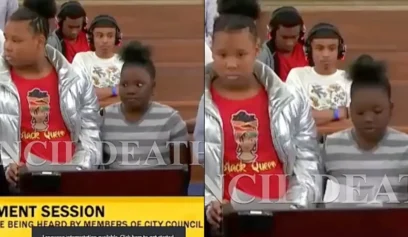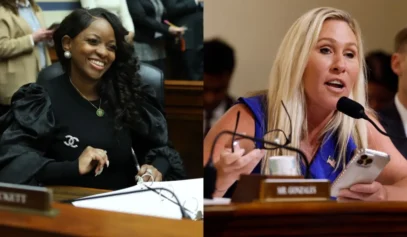The case surrounding a Black student who was suspended from his school in Texas last year because he refused to cut his locs began with ongoing discipline, escalated to a full civil rights lawsuit, and now, it’s drawn the personal reflections from the district superintendent himself.
Barbers Hill Independent School District Superintendent Greg Poole wrote a critique in a full-page advertisement to the Houston Chronicle’s editorial board over an article the board wrote about 17-year-old Darryl George and the continued punishment the teen faces over his hair.

Why was a full-page ad purchased just to get this message out? Poole alleged that the Chronicle refused to print a letter he wrote in 2020 to criticize the paper’s guidance during the COVID-19 pandemic. So the Barbers Hill ISD Education Foundation bought the ad so Poole could publicize a response to how the paper has covered recent developments in the district’s handling of George’s suspension.
“How poignantly ironic that the Chronicle criticizes limited dress code conformity that is correlated to student success yet wholeheartedly sanctioned complete face-mask conformity that is still questioned today as an adequate defense against COVID-19,” Poole wrote. “These clear-cut errors in judgment are explained by the Chronicle’s need to do more fact-checking and less fact-blocking.”
Poole defends Barbers Hill ISD’s actions during the pandemic and how it maintained in-person student instruction despite county guidance to preface his full critique of how the paper has covered the controversial case surrounding George, his hair, and the district’s dress code.
In that critique, Poole cited the increase in the number of African-American students who have enrolled in the district since 2021 and the district’s history of appointing African-Americans to the school board, none of which has anything to do with George’s case.
He also pointed to different military academies nationwide that “maintain a rigorous expectation of dress” to demonstrate the detriment of relaxing school standards.
“They realize being an American requires conformity with the positive benefit of unity, and being part of something bigger than yourself,” Poole wrote of these academies to draw similarities between their standards and how Barbers Hill has exercised their rules against George.
In one mention of the dress code, Poole says the district allows African-American students with religious reasons to maintain their longer hair.
He also purports that the district is not violating the CROWN Act since hair length is not covered in the legislation. The district has requested a declaratory judgment from a district court to ensure that this interpretation can be applied.
George is still facing punishment for not complying with Barbers Hill’s mandates to cut his hair, according to the Chronicle, and his story has made national headlines.
The school records show that Darryl was placed on in-school suspension starting last August because his hair, when unpinned, is longer than his eyebrows.
The CROWN Act, which bans race-based discrimination in schools and workplaces, was passed in the state just a week after George was first suspended. Yet, the school district continued to discipline George.
His family filed a federal civil rights lawsuit against Texas Gov. Greg Abbott and the state attorney general for not enforcing the measure in George’s case.


